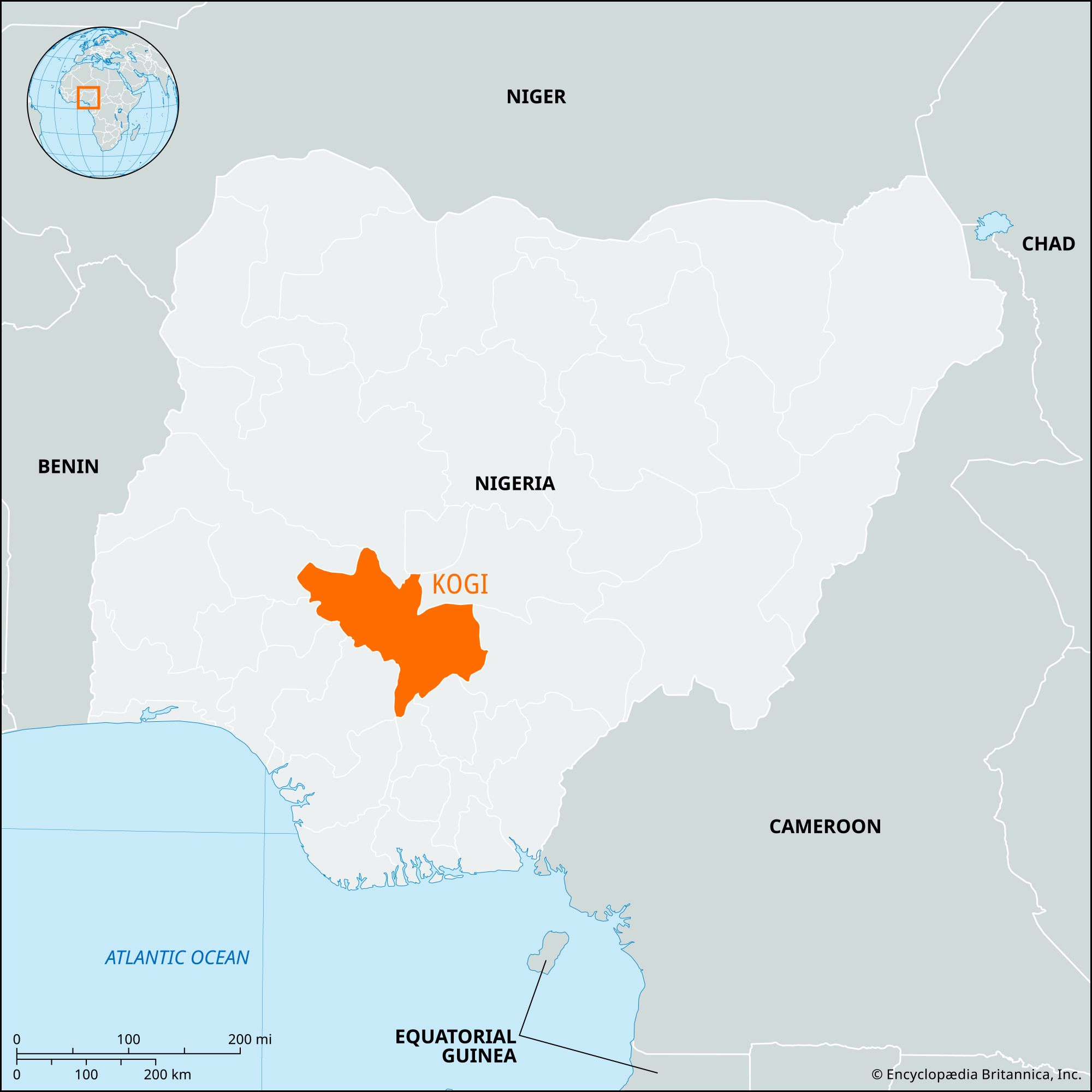Kogi State
States Jan 04, 2025

Table of Contents
History and Overview of Kogi State, Nigeria
Kogi State is one of the 36 states of Nigeria, located in the central region of the country. It is often referred to as the “Confluence State” because it is home to the confluence of Nigeria’s two major rivers, the Niger and the Benue. Created on August 27, 1991, Kogi State was carved out from parts of Kwara and Benue States. Its capital is Lokoja, a city steeped in historical significance.
Pre-Colonial History of Kogi State
Before the creation of Kogi State, the region was home to various ethnic groups with rich cultural traditions. The three major ethnic groups in the state are the Igala, Ebira, and Okun (a subgroup of Yoruba). These groups had distinct kingdoms and societies, each with its unique governance structure and economic activities.
The Igala Kingdom, one of the most prominent in the region, was a powerful entity in pre-colonial Nigeria. The Ata of Igala served as the ruler and was highly respected in the region. The Ebira people were known for their craftsmanship and iron smelting, while the Okun people shared cultural and linguistic ties with the Yoruba of southwestern Nigeria.
Colonial Era and Lokoja’s Significance
Lokoja, now the capital of Kogi State, played a pivotal role during the colonial era. It was the first administrative capital of Nigeria, established by Lord Frederick Lugard in 1914. Lokoja served as a key center for British colonial administration and trade. The city also holds historical importance as the location where the name “Nigeria” was coined by Flora Shaw, a British journalist and the wife of Lord Lugard.
The colonial era saw the construction of key infrastructure in Lokoja, including the Mount Patti hill, where Lugard had his residence. Today, Mount Patti remains a popular tourist attraction, offering panoramic views of the Niger and Benue rivers.
Creation of Kogi State
Kogi State was created in 1991 during the military regime of General Ibrahim Babangida. Its establishment aimed to bring governance closer to the people of the region and address the unique needs of its diverse population.
The state is strategically located, sharing boundaries with ten other Nigerian states, including the Federal Capital Territory (FCT). This central location makes Kogi a vital hub for transportation and commerce in Nigeria.
Culture and Traditions
Kogi State is a melting pot of cultures, with its diverse ethnic groups celebrating various festivals and ceremonies. The Igala people celebrate the “Ocho Festival” to mark the end of the farming season, while the Ebira people are known for their colorful masquerades. The Okun people have rich cultural festivals that highlight their Yoruba heritage.
The state is also known for traditional arts and crafts, including pottery, weaving, and ironwork. These crafts reflect the ingenuity and creativity of the people of Kogi State.
Tourist Attractions in Kogi State
Kogi State boasts numerous tourist attractions that draw visitors from across Nigeria and beyond. Some notable sites include:
- Mount Patti: A historic hill that offers breathtaking views and holds colonial-era relics.
- Confluence of Rivers Niger and Benue: A natural wonder where Nigeria’s two major rivers meet.
- Lord Lugard’s Residence: A colonial-era building that serves as a reminder of Nigeria’s history.
- Lokoja Colonial Cemetery: The resting place of early British settlers and missionaries.
- Ogidi Festival: Celebrated in the town of Ogidi, showcasing traditional music, dance, and art.
Economy and Resources
Kogi State is rich in natural resources, including coal, limestone, iron ore, and crude oil. These resources have made the state an important player in Nigeria’s industrial and mining sectors. Agriculture is also a significant part of the state’s economy, with crops like cassava, yam, rice, and maize being widely cultivated.
Conclusion
Kogi State holds a unique place in Nigeria’s history and geography. From its role in the colonial era to its cultural diversity and natural resources, the state continues to contribute to the nation’s development. Its rich history and vibrant culture make it a fascinating destination for tourists and historians alike.
